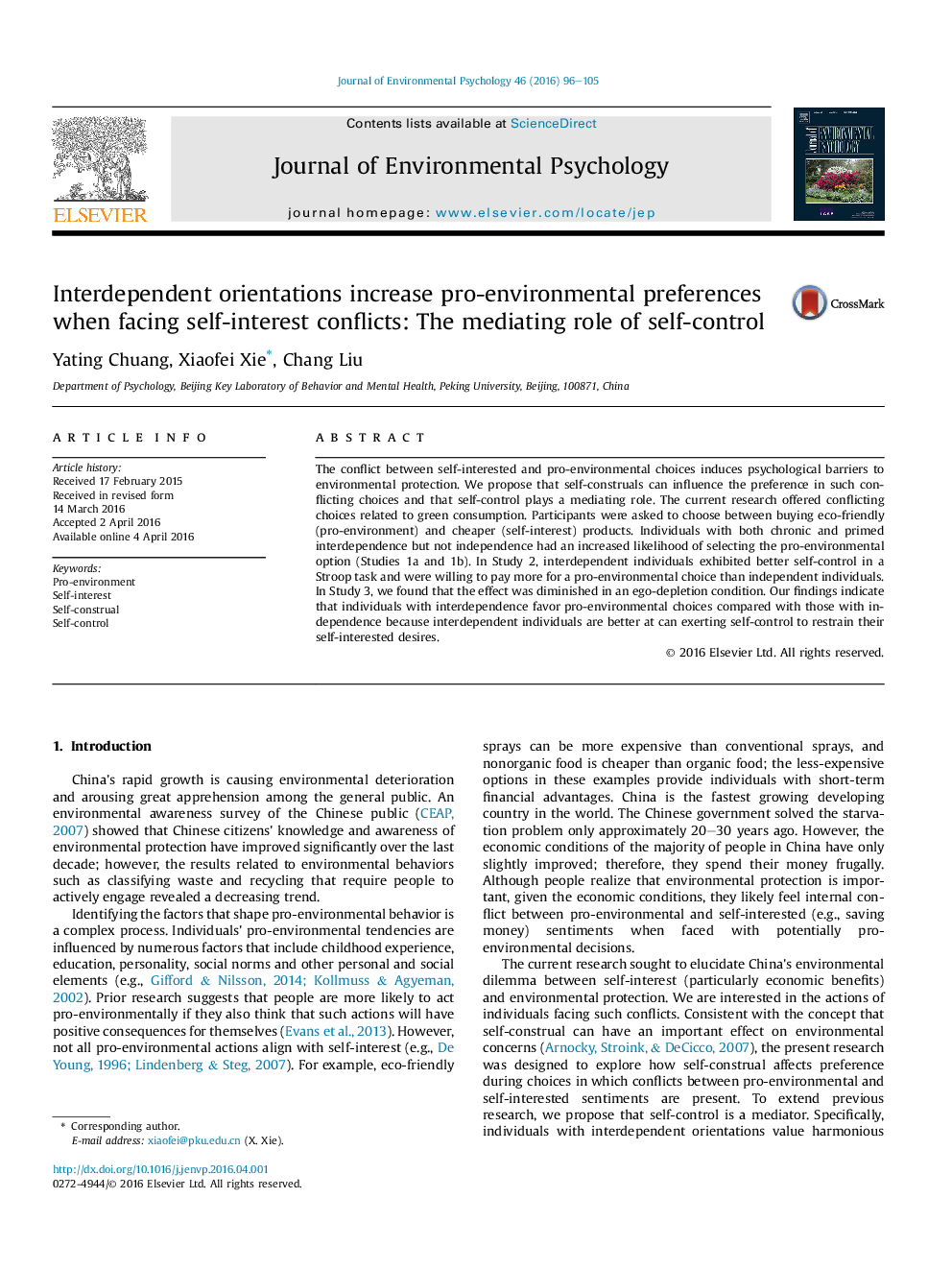| Article ID | Journal | Published Year | Pages | File Type |
|---|---|---|---|---|
| 885571 | Journal of Environmental Psychology | 2016 | 10 Pages |
•Faced with conflicts between pro-environmental and self-interested goals, individuals' self-construals affect their decision preferences.•Interdependent orientations, whether chronic or primed, favor pro-environmental choices to a greater extent than independent orientations do.•The mediating factor: Interdependent people exhibit better self-control ability to restrain self-interested desires than independent people.
The conflict between self-interested and pro-environmental choices induces psychological barriers to environmental protection. We propose that self-construals can influence the preference in such conflicting choices and that self-control plays a mediating role. The current research offered conflicting choices related to green consumption. Participants were asked to choose between buying eco-friendly (pro-environment) and cheaper (self-interest) products. Individuals with both chronic and primed interdependence but not independence had an increased likelihood of selecting the pro-environmental option (Studies 1a and 1b). In Study 2, interdependent individuals exhibited better self-control in a Stroop task and were willing to pay more for a pro-environmental choice than independent individuals. In Study 3, we found that the effect was diminished in an ego-depletion condition. Our findings indicate that individuals with interdependence favor pro-environmental choices compared with those with independence because interdependent individuals are better at can exerting self-control to restrain their self-interested desires.
